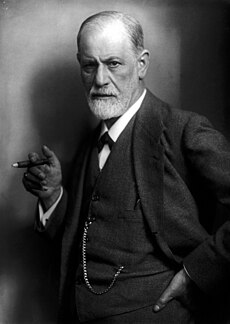 |
| Sigmund Freud, 1920. Credit & photo details: Wikipedia. |
Sigmund Freud, born Sigismund Schlomo Freud (according to his birth certificate, as found, e.g. in the Library of Congress' manuscript division web site) wrote in On Beginning the Treatment (1913) (English translation by Ivan Smith, online):
Anyone who hopes to learn the noble game of from book[s] will soon discover that only the openings and the end-games admit of an exhaustive systematic presentation and that the infinite variety of move which develop after the opening defy any such description. This gap in instruction can only be filled by a diligent study of games fought by masters. The rules which can be laid down for the practice of psycho-analytic treatment are subject to similar limitations.He adds:
In what follows I shall endeavour to collect together for the use of the practising analysts some of the rules for the beginning of the treatment. Among them there are some which may seem to be petty details, as, indeed, they are. Their justification is that they are simply rules of the game which acquire their importance from their relation to the general plan of the game... [but] a course of of action that is as a rule justified may at times prove ineffective, whilst one that is usually mistaken may once in a while lead to the desired end.It seems that Freud's analogy between chess and psychoanalysis is quite significant, from only the opening and endgames being subject to exact rules, to the need to study masters' games (of chess or analysis), to the need of a general plan for both games. While nobody ever claimed that Freud was a chess master, least of all Freud himself, it is known from well known biographies that he played the game but gave it up since he found it too stressful (there are some examples online here). This points out to a man who knew something of chess.
It is interesting to note that the father of psychoanalysis uses chess as an insightful metaphor, but saw nothing particularly psychologically remarkable about chess players as such, unlike later analysts who claimed all kinds of deep subconscious, usually sexual, motives that allegedly underlie chess playing itself, the style of a particular player, or even specific moves in well-known games. Perhaps they should have heeded the advice found in Freud's own work, 'Wild' Psychoanalysis (1910).
האמירה הזו של פרויד מופיעה בשער התכניות לפסיכותראפיה של מכון מגיד מבית האוניברסיטה העברית http://magid.huji.ac.il/%D7%AA%D7%95%D7%9B%D7%A0%D7%99%D7%95%D7%AA/%D7%91%D7%99%D7%AA-%D7%94%D7%A1%D7%A4%D7%A8-%D7%9C%D7%A4%D7%A1%D7%99%D7%9B%D7%95%D7%AA%D7%A8%D7%A4%D7%99%D7%94
ReplyDelete